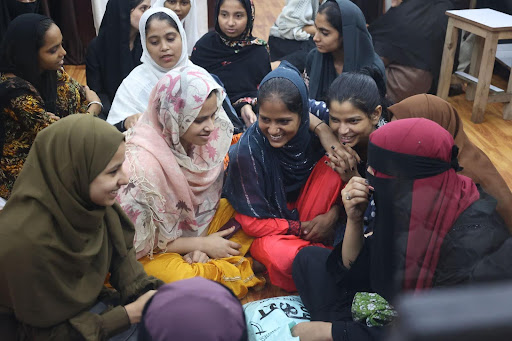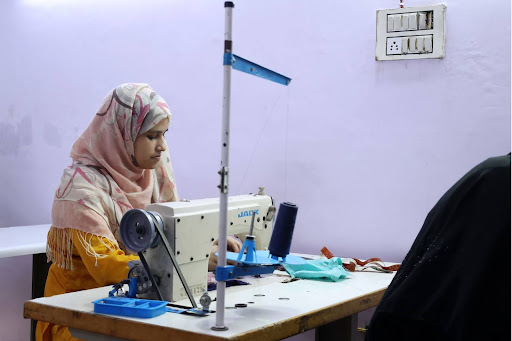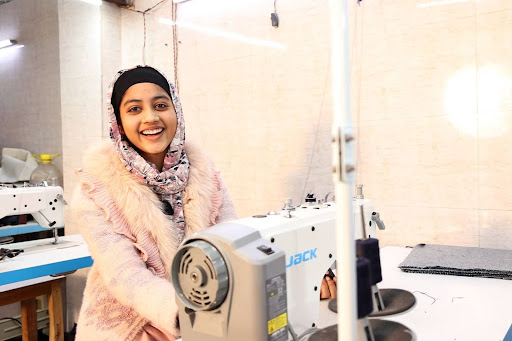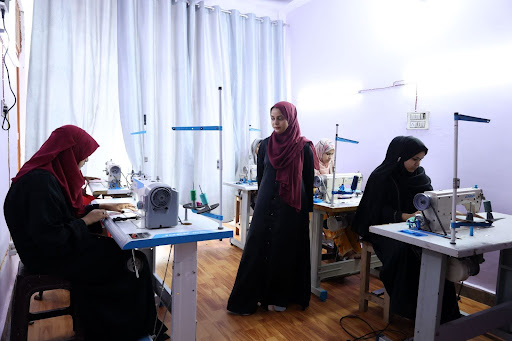Delhi: How Women Are Stitching New Lives from Fabric of Loss and Thread of Hope After in Riot-Hit Shiv Vihar

Maryam Hassan and Unzila Sheikh/TwoCircles.net
New Delhi: Shiv Vihar carries the silence of broken dreams. The 2020 Delhi riots swept through this northeast Delhi neighbourhood. Homes were burned, shops looted and lives uprooted. Among the soot and rubble, 19-year-old Shumayla and her family lost everything. Their house was reduced to memories.
Today, she sits at a sewing machine in the Sabaat Centre, threading fabrics into full-grown suits. “I began at ground level. Now I can make entire suits. It feels nice to create something on my own,” she said.
For her, the needle of her sewing machine is like a compass guiding her towards hope.
[caption id="attachment_452488" align="aligncenter" width="512"] The Sabaat Center at Shiv Vihar[/caption]
The Sabaat Center at Shiv Vihar[/caption]
Sewing Stories with Sabaat
An initiative of the Miles2Smiles Foundation, the centre was born from the same flames that destroyed Shumayla’s world. Its founder, Aasif Mujtaba, witnessed firsthand how survivours in Shiv Vihar held together their shattered worlds.
“I saw women in Shiv Vihar holding their worlds together with grace, and I knew they deserved more than just pity,” he said.
From this empathy came Sabaat, a place where women learn to stitch, create and rebuild their identities.
Shabnam, a mother of three, leaves behind her home chores for a few hours to learn something creative at the centre.
“While managing the house along with the work is difficult, I love coming here,” she says.
At the center, women thread, stitch and craft, turning cloth into outfits, tote bags, pouches, magnets, mugs and keychains.
[caption id="attachment_452484" align="aligncenter" width="512"] Women work at sewing machines in the Sabaat Center, crafting outfits and other merchandise[/caption]
Women work at sewing machines in the Sabaat Center, crafting outfits and other merchandise[/caption]
Aasif calls their work a story: “Every tote bag, keychain, magnet or cup has a story of survival, strength and hope.”
Farheen Ansari, a fashion designer who leads the training, ensures their skills match market demands. The women attend morning sessions from 9 am to 11 am, growing from beginners to masters over six months or more, depending on their pace.
“We get orders from local boutiques,” she told TwoCircles.net.
Their crafts are sold through the Sabaat Store, returning income directly to the women who made them.
Beyond Stitching
But Sabaat’s work is not limited to sewing. Women learn how to handle orders, set prices, brand products and even promote them online. Acquiring these skills are essential to turn trainees into entrepreneurs.
“Whenever a student learns something new, I tell her to implement it at home,” says Farheen, adding that some do just that.
[caption id="attachment_452483" align="aligncenter" width="512"] Sabaat empowers women by providing emotional support alongside practical skill training[/caption]
Sabaat empowers women by providing emotional support alongside practical skill training[/caption]
Women like Sangeeta, Daraqshan, Saiba and Gulafshan have started their own small businesses.
Initiated for survivors of hate violence, widows and women from marginalised and economically vulnerable groups, Sabaat has already trained 70 women.
"Impressively, at least 70% of them have achieved financial independence, whether working within Sabaat or starting their own ventures," claims Aasif.
[caption id="attachment_452482" align="aligncenter" width="512"] Women at the center undergo an extensive training program for manufacturing products[/caption]
Women at the center undergo an extensive training program for manufacturing products[/caption]
In addition to offering skill-based training, the programme is also bridging trauma and offering dignity, trust and a voice. Most days end in shared smiles. The women’s laughter fills the centre, evidence that even broken neighbourhoods can teach courage.
Amid ongoing struggles for justice and pending compensation, Sabaat brings healing where paperwork lags. Plans are underway to expand, bringing this safe space to more women and more neighbourhoods.
